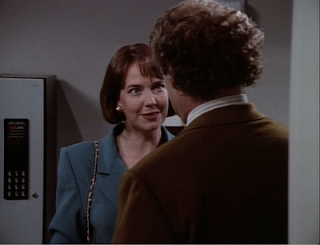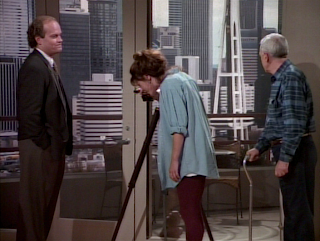
One of the many gaps in my cultural literacy is that I have not yet read any of Sir Arthur Conan Doyle’s original Sherlock Holmes stories. I think I read one or two abridged/”guess who did it” versions as a kid, and I enjoyed the Jeremy Brett stories that aired on PBS, but my Holmesian knowledge is sadly low, and so I can’t quite comment on how the new action-heavy SHERLOCK HOLMES does and doesn’t diverge from the canon. Generally speaking, though, I like it. It’s very much Holmes as two-fisted Victorian pulp hero, and both the script and Guy Ritchie’s direction have a joyful abandon, which is wrapped around some solid old-fashioned adventure storytelling.
Holmes (Robert Downey, Jr.) and Watson (Jude Law) are first encountered in the sewers beneath London, disrupting a planned cult sacrifice and apprehending the villain, Lord Blackwood (Mark Strong.) Blackwood is convicted of five murders and sentenced to hang, but before going to the gallows he promises Holmes that a much greater plan is unfolding. Sure enough, after his execution Blackwood appears to burst forth from his grave and begin a series of new murders. Holmes is naturally on the case, and drags along a reluctant Watson, who was planning on leaving the whole business now that he’s engaged to the lovely and supremely patient Mary Morstan (Kelly Reilly). But he was the one who pronounced Blackwood dead in the first place, and he has a reputation to look after.
The story grows to involve an ancient and powerful secret society that has purportedly guided the British Empire for some time, a mysterious figure out to manipulate Holmes, and Irene Adler (Rachel McAdams), a gorgeous American-born thief and dilettante who is the only woman to have outsmarted Holmes in the past. Of course, since this is a Sherlock Holmes adventure, we approach it primarily as a mystery, and on this level it’s pretty honest. Not so much a “whodunit” as “what’s he doing and why?”, the story is twisted, even convoluted at times, but the solution is rational and nothing stands out as an obvious plot hole.
The new HOLMES is as much an action-adventure film as it is a mystery, and while I’m sure some will see it as a betrayal of the character, the two elements are blended quite well. In the books, or so I’m told, Holmes was established as a master of many martial arts, and an ingenious cinematic device here has him winning fights by plotting each move in advance, calculating for both physical and psychological damage. Along with the fisticuffs, we’ve got some nice elaborate deathtraps, narrow escapes from deadly situations, and the premature launching of an unfinished boat.
What holds all this insanity together is some very strong character work. Robert Downey, Jr. is an actor who is not afraid of looking ridiculous, and this is important for Sherlock Holmes, who is far too busy uncovering clues and finding things out to care about behaving like a normal person. Jude Law’s Watson is allowed to be badass in his own way; some Watsons have been so bumbling that it’s easy to forget that the character was an Afghan war veteran and brilliant doctor. The film doesn’t shy away from the fact that Holmes and Watson kind of come across as a couple, and while Mary and Irene make compelling distractions, it’s hard not to see what the central love story is.
I love the way the film moves, as if everyone’s enjoying the prospect of liberating the characters from the staid and dignified atmosphere of “classic literature”. Doyle wrote the stories as popular entertainment, and the picture has the feel of something contemporary readers would drop a few pence for and enjoy over an evening. There’s a nice, grotty Victorian atmosphere too, colorless and dirty but somehow not really bleak.
It’s interesting to think that over twenty years ago, the makers of YOUNG SHERLOCK HOLMES had to more or less preemptively apologize for sullying the name of a beloved literary character for the purposes of a Spielbergian adventure romp. Now, nobody’s batting an eye, and there’s no reason to, because this film manages to do justice to the great detective while giving him a slick new look. At heart, we’re still following the adventures of a wonderfully smart man who’s also a little bit crazy, who fights villains and preserves order not so much out of moral concern but out of an interest in being right. The film wraps up with some very obvious sequel hooks, and I don’t mind because I want to see where they go with this. This is more fun than it has any right to be.
Based on characters created by Sir Arthur Conan Doyle
Story by Lionel Wigram and Michael Robert Johnson
Screenplay by Michael Robert Johnson, Anthony Peckham, and Simon Kinberg
Directed by Guy Ritchie
Grade: A-















